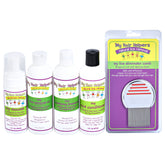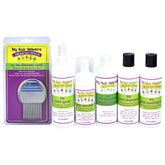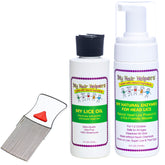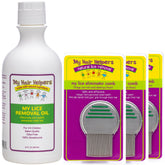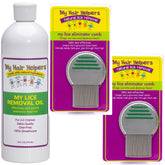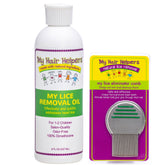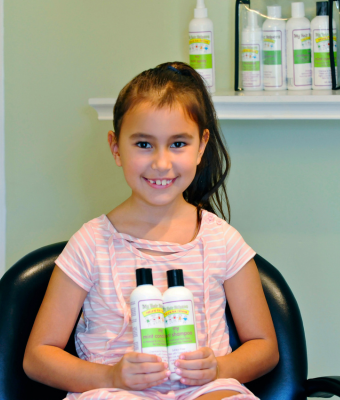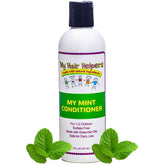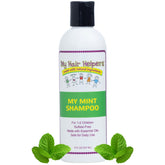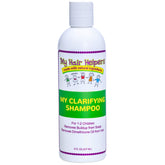ITCHY SCALP? HEAD LICE ISN'T ALWAYS THE CULPRIT
When someone in the home complains of an itchy scalp, it’s normal to think it might be head lice. For most people, the most common symptom of head lice is itching. And, if you perform a head lice check and see any type of residue on the head, you might suspect head lice! And why wouldn't you? All the signs point in one direction, right?
Well, not exactly. First of all, there are other signs of head lice besides itching, such as a tickling sensation in the hair, trouble sleeping, irritability, and sores on the neck, scalp, and shoulders. Second, other things can be mistaken for head lice. This happens quite often.
The easiest way to tell if someone has head lice is by doing a head lice check. You can do this at home, or you can book a virtual head lice check with a lice expert. If lice are identified, you’ll likely need a kid-safe lice treatment.
Here are some of the most common things that can be confused with head lice. By using a flashlight, magnifying glass, and stainless steel lice comb, you can rule out these other causes.
Dandruff
Dandruff typically causes visible flakes on the scalp, along with itching. Dandruff has several causes, which include irritated, oily skin, dry skin, or fungus. If you have dandruff, using a dandruff shampoo and scalp treatments can help improve symptoms.Contact Dermatitis
An itchy, dry, and flaky scalp could mean contact dermatitis. This can be common in kids because they don’t always do a good job rinsing out shampoo, which can cause skin irritation. You may also have an allergy to a particular shampoo or conditioner.Scabies
Scabies is an itchy skin rash caused by a tiny, burrowing mite. If these mites happen to burrow into your scalp, it can become quite itchy. You might also notice small bumps on the head and face. To get rid of scabies, you’ll need a prescription medication from your doctor.Ringworm
Scalp ringworm is an infection caused by a fungus. If you get it on your scalp, it will itch intensely. Instead of small bumps, ringworm typically presents itself as a red dry patch. You will need a doctor’s prescription or over-the-counter cream to treat ringworm.Scalp Psoriasis
Reddish patches on the scalp may indicate psoriasis. These patches tend to itch, and they can spread to the back of the neck and behind the ears. Other symptoms of psoriasis include dandruff-like flaking, dry scalp, and silvery-white scale. There are many treatments for scalp psoriasis, including medicated shampoo.Atopic Dermatitis
Atopic dermatitis is a type of eczema that can develop on your scalp. Some people say that the rash feels itchy, while others say it burns. Fortunately, there are many treatments for atopic dermatitis, including topical creams, antihistamines, and steroids.As you can see, many different things can mimic the appearance and symptoms of head lice. This is why it’s important to know how to do head lice checks at home. And, if it turns out that you or your child has lice, you can treat them effectively with lice products from My Hair Helpers!


